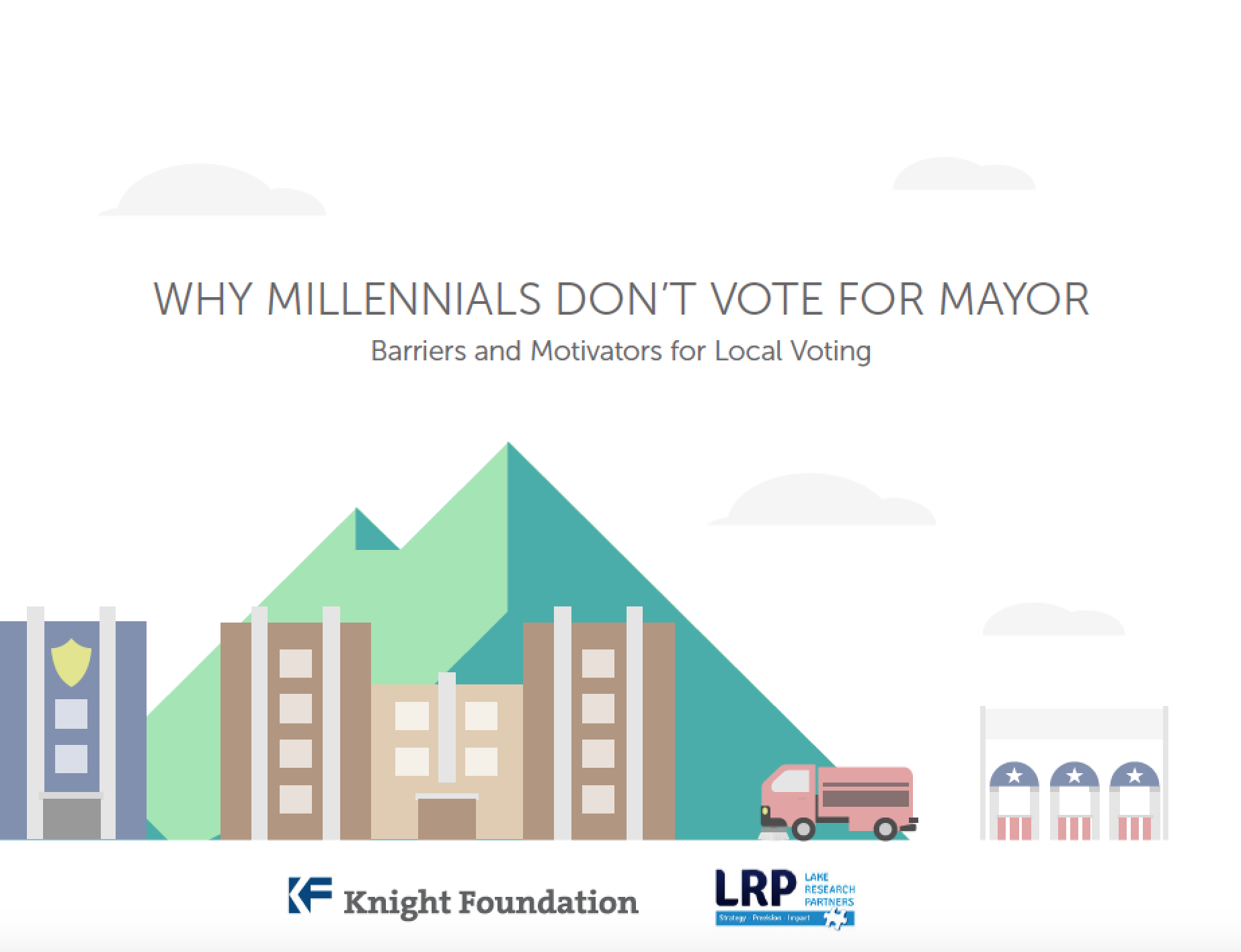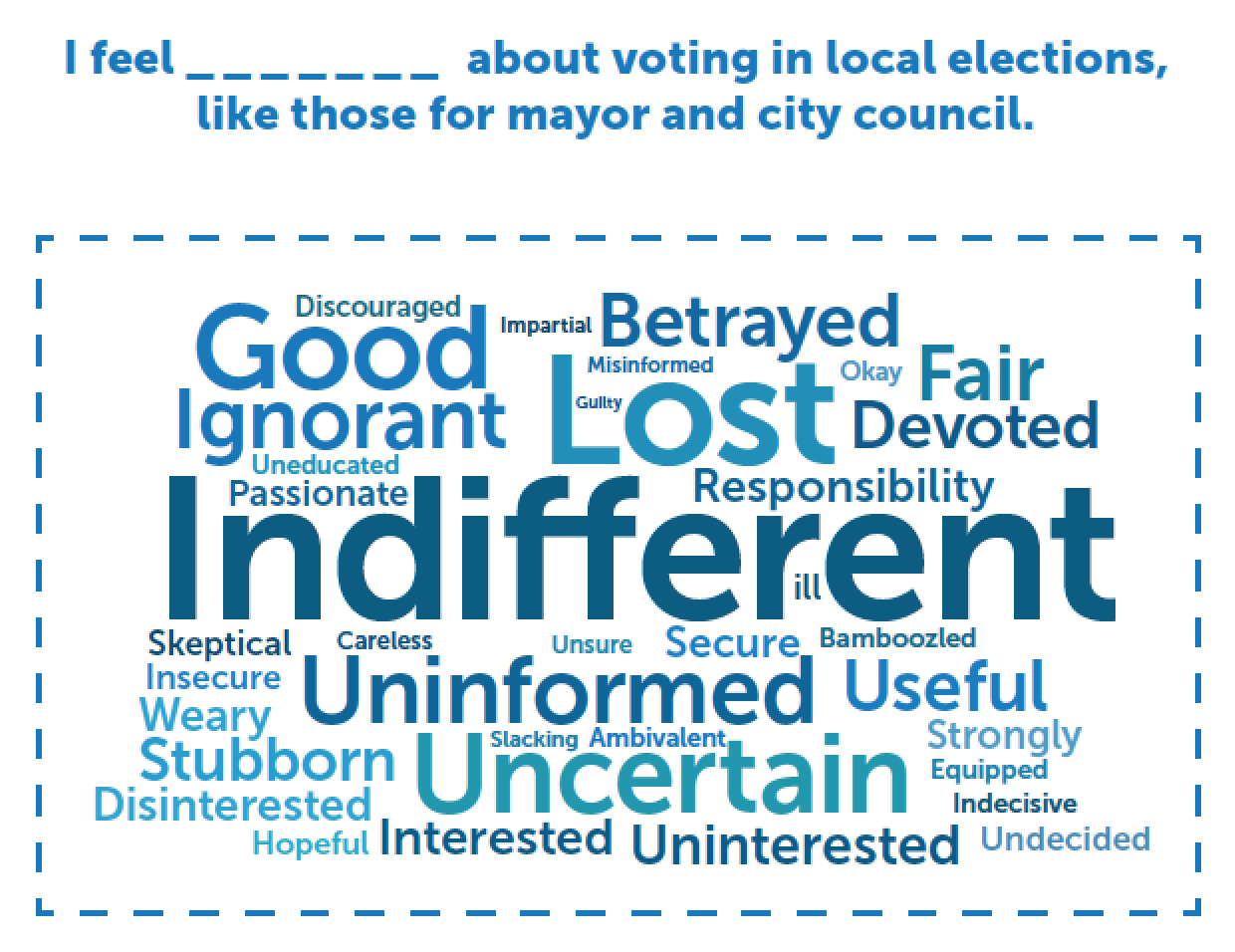
Mayoral elections and millennials
Related Link

Join the conversation
Knight Foundation will host a Twitter chat at 1 p.m. ET on June 11, 2015 to discuss the findings and get public feedback. Follow @knightfdn and use #votelocal to participate.
There was significant fanfare about how turnout for the 2014 midterm elections was the lowest it’s been in 72 years. Look beyond the dramatic headlines and you’ll discover that turnout for national elections has actually been relatively flat over the past half century.
What’s been less discussed though is the anemic and declining turnout for local elections. A recent study of turnout for mayoral elections in large cities showed steady declines over the past decade and only 1 in 5 eligible residents showing up to the polls for local elections.
Today, Knight Foundation released research about the barriers and motivators for local voting. The research specifically focused on “drop-off millennial voters,” meaning millennials (ages 20 to 34) who voted in the last national election but not in their recent local elections. We know that young adults vote at lower rates than others; through focus groups with millennial drop-off voters in Akron, Ohio, Miami and Philadelphia, this research offers a window into attitudes of millions of millennials voting in national elections but not locally, asking why.
The biggest obstacle to local voting they cited was a lack of information. Millennials in the focus groups said they simply did not know enough about the candidate, ballot initiatives and issues covered in local elections; they have not felt informed enough to vote wisely, so they don’t vote at all. Many admitted to not proactively seeking this information though, so addressing information barriers will require focusing on how information is disseminated and not just supplying more information.
Millennials conveyed their confusion about the role of local government. Just as recent studies have shown declining trust in government, the focus group participants demonstrated a fair amount of distrust and cynicism toward government. But a more significant takeaway was that most struggled to understand how local government affected their lives and asked things like “do schools counts?” Many could not name their mayor let alone other elected local officials.
Millennials care about several local issues but do not make the connection between local government and these issues; thus, they do not see the importance of voting. This is very important pared with the finding that when millennials were presented with several messages framing the value of voting, they gave the highest ratings to ones that named specific issues impacted by voting and elicited civic pride. Messages framing voting as a civic duty or saying the young generation has a responsibility to vote scored lower.
Equally important for encouraging higher millennial turnout for local elections will be building their sense of attachment to place. Studies have suggested that people who move to a new city are less likely to vote locally than long-standing residents, and young adults move more often than any age group. Focus group participants raised in the city where they currently reside along with those committed to living in the city for several years to come spoke more positively about the importance of civic engagement and their likelihood of voting in future local elections. So building attachment among newcomers will be key not only for retaining millennial talent but also ensuring that the growing population of millennials moving to cities engage to shape more positive futures for these communities.
Jonathan Sotsky is director of strategy and assessment for Knight Foundation.
Recent Content
-
Community Impactarticle ·
-
Community Impactarticle ·
-
Community Impactarticle ·




